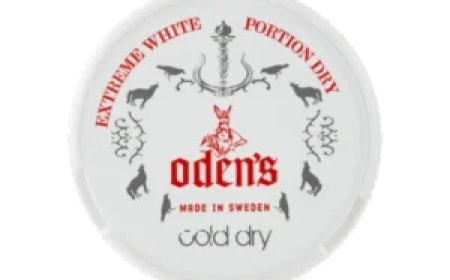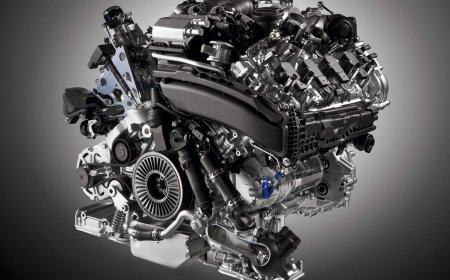What’s the Best Diesel Oil for Construction Equipment?

Introduction
Construction equipment operates under extreme conditionsheavy loads, high temperatures, and constant friction. Choosing the right diesel engine oil is crucial for ensuring peak performance, longevity, and fuel efficiency. With so many options available, how do you pick the best one for your machinery?
In this guide, well break down the key factors to consider when selecting diesel oil for construction equipment and highlight whyNescol Diesel Engine Oilstands out as a top choice for heavy-duty engines.
Why Does Diesel Oil Matter for Construction Equipment?
Diesel engines in construction machinery are built to endure tough working environments. The right oil must:
-
Reduce wear and tear Minimize friction between engine components.
-
Prevent deposits and sludge Keep the engine clean for optimal performance.
-
Enhance fuel efficiency Lower operational costs by improving combustion.
-
Withstand high temperatures Prevent breakdown under extreme heat.
-
Extend engine life Reduce maintenance costs and downtime.
Using the wrong oil can lead to accelerated engine wear, increased fuel consumption, and even catastrophic failure.
Key Factors to Consider When Choosing Diesel Oil
1. Viscosity Grade
Viscosity determines how well the oil flows at different temperatures. Construction equipment often operates in varying climates, so the oil must perform in both cold starts and high-heat conditions.
-
Single-grade oils (e.g., SAE 30, 40) Best for consistent temperatures.
-
Multi-grade oils (e.g., 15W-40, 10W-30) Ideal for fluctuating temperatures.
Most construction equipment manufacturers recommend multi-grade oils like15W-40for optimal performance.
2. API Classification
TheAmerican Petroleum Institute (API)sets standards for diesel oils. Look for:
-
CK-4 The latest standard for high-speed, four-stroke engines, offering better oxidation resistance and shear stability.
-
CJ-4 Suitable for older engines with emissions systems.
Always check your equipments manual for the recommended API classification.
3. Additive Package
High-quality diesel oils contain additives that:
-
Detergents Clean engine deposits.
-
Anti-wear agents Protect metal surfaces.
-
Anti-oxidants Prevent oil breakdown.
-
Corrosion inhibitors Shield engine components from rust.
Premium oils likeNescol Diesel Engine Oiluse advanced additives for superior protection.
4. Synthetic vs. Conventional Oil
-
Conventional oil Affordable but requires more frequent changes.
-
Synthetic oil Offers better high-temperature stability and longevity, ideal for heavy-duty equipment.
For construction machinery,synthetic blends or full syntheticsare often the best choice.
5. OEM Recommendations
Always follow the manufacturers guidelines for oil specifications. Using the wrong type can void warranties and damage the engine.
Top Picks for Diesel Engine Oils in Construction Equipment
While there are many brands available, here are some of the best options:
-
Nescol Diesel Engine Oil A high-performance oil designed for extreme conditions, offering excellent thermal stability and engine protection.
-
Shell Rotella T6 A fully synthetic oil with advanced wear protection.
-
Mobil Delvac 1300 Super A reliable conventional oil for heavy-duty engines.
-
Valvoline Premium Blue Extreme Engineered for modern diesel engines with extended drain intervals.
Among these,Nescol Diesel Engine Oilis a standout choice for its superior formulation tailored for construction machinery.
Why Choose Nescol Diesel Engine Oil?
Nescol Diesel Engine Oil is engineered to meet the rigorous demands of construction equipment. Heres why its a top recommendation:
?Advanced Additive Technology Reduces sludge and deposits for a cleaner engine.
?Exceptional Thermal Stability Performs reliably in extreme heat.
?Enhanced Wear Protection Extends engine life even under heavy loads.
?Improved Fuel Efficiency Lowers operational costs over time.
?Meets API CK-4 Standards Ensures compliance with modern diesel engine requirements.
Whether youre running excavators, bulldozers, or loaders,Nescol Diesel Engine Oilensures your equipment runs smoothly and efficiently.
How Often Should You Change Diesel Oil in Construction Equipment?
Oil change intervals depend on:
-
Operating conditions(dusty environments require more frequent changes).
-
Engine age(older engines may need shorter intervals).
-
Oil type(synthetic oils last longer).
A general guideline:
-
Conventional oil Every250-500 hours.
-
Synthetic oil Every500-1,000 hours.
Always monitor oil levels and condition regularly.
Signs You Need an Oil Change
-
Dark, gritty oil Indicates contamination.
-
Engine knocking Poor lubrication.
-
Increased exhaust smoke Oil breakdown.
-
Loss of power Reduced efficiency.
Dont wait for these signsstick to a maintenance schedule.
Conclusion
Selecting the best diesel oil for your construction equipment is critical for performance, durability, and cost savings. Key factors include viscosity, API classification, additives, and synthetic vs. conventional options.
Among the top choices,Nescol Diesel Engine Oilstands out for its superior protection, thermal stability, and fuel efficiencymaking it an excellent investment for heavy-duty machinery.
By choosing the right oil and adhering to maintenance schedules, you can maximize your equipments lifespan and minimize costly repairs.




































